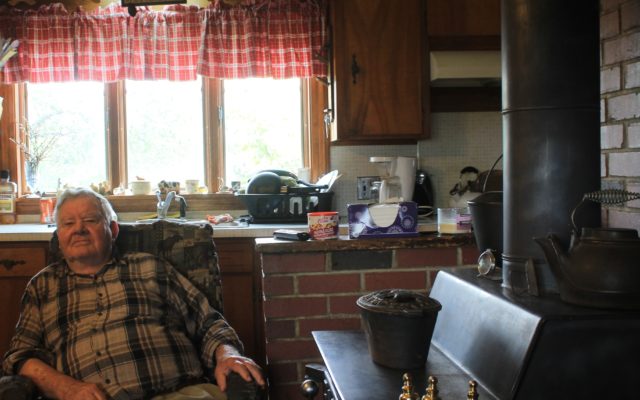
FORT FAIRFIELD, Maine — As Aroostook County’s potato harvest gets into full swing, this year, 85-year-old Bernard Webb of Fort Fairfield is not digging up any potatoes for the first time in his long farming career.
Webb said that his age, carpal tunnel, and a shortage of labor all factored into his decision not to plant a few acres of potatoes this year.
“I was going to plant some potatoes. It was my health and the labor,” said Webb, who was among the few small farmers still relying on temporary workers to hand pick potatoes.
As many businesses looking for both temporary and year-round employees know, good workers are hard to find.
“It’s getting hard to get help. It used to be a lot easier. A lot of the people had jobs and were always looking for some extra money,” Webb said. “Most everybody I know that owns a farm has problems with labor.”
While Webb is no longer farming himself, he has a bird’s eye view of the region’s potato economy from his home on Route 1A, across the road from the Cavendish Agri-Services fertilizer depot.
Webb grew up working on his family farm with horses and small tractors during the peak of Aroostook County’s potato empire. After serving in the Army in the 1950s and getting married to a Canadian lady, he struck out on his own to farm, raise seed and fresh market potatoes, first on rented land and then at his current property, which he bought in 1962.
“It was not that easy to get a place then,” Webb said.
Webb raised Kennebec, Katahdin and other potato varieties on 70 acres for more than four decades, relying on he and his late wife’s six kids and legions of seasonal workers each fall. More recently, he was among the few farmers growing Green Mountain potatoes, a tasty variety that’s hard to grow due to bruising and blight susceptibility.
“Back when I had 70 acres, we’d have 30 or 40 people. The last day we finished up, we’d have a big party with a bonfire. The kids liked that.”
Unlike many other farmers of his generation, Webb managed to avoid going broke or losing his land during the farm crisis of the 1980s.
“Up and down this road, there were a lot of farmers that lost their land. I went to the auctions. It was a sad deal.”
Following his father’s strategy, Webb tried to avoid purchases that would leave him with a lot of debt. “There were a lot of things I needed, but I got by without it.”
And while many years were bad or marginal for farm income, the years with good prices helped even out those fluctuations.
“You could drive up and down the road here and tell what year the potatoes had a good price because [you’d see] new equipment and new cars sitting in their dooryard.”
Webb eventually sold most of his land, while still raising a few acres of fresh market potatoes up until last year. His sister still lives on the original family homestead on the Fort Road while renting out some 150 acres, and Webb keeps in touch with all the folks he worked with over the years.
“Somebody asked me the other day if I would do it all over again, and I said, ‘Yes, I would.’ I enjoyed it. I met a lot of people and I had people who liked buying from a small farmer.”
- 85-year-old Bernard Webb of Fort Fairfield enjoys the warmth of a woodstove on a cool morning Sept. 19, the second time he’s fired it up this month. (Anthony Brino)








